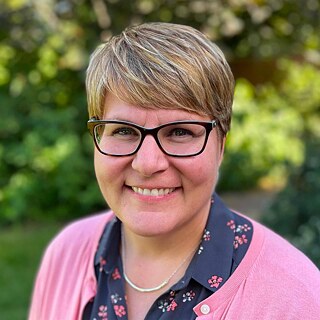What year did you first participate in a GAPP exchange, and what was that experience like?
I took my exchange trip in June of 1989, just four months before the fall of the Berlin Wall. There was a lot of tension at that time, though as a high school student in a foreign country, I didn’t really notice it at first. Then, we had a very tense moment on a bus headed to East Berlin. A German student joked with an East German border guard about having contraband in his suitcase. The soldiers made us leave the bus and then searched everything with dogs, it was terrifying.
Once we made it to East Berlin, I was shocked to see the struggles that part of Germany was going through. I remember we visited a grocery store on ‘cheese day’, and because of the food shortages, there was a huge line just to get a single block of cheese. I’ve never experienced that in the U.S., and it gave me a very different perspective on my country at a young age.
Do you feel like your GAPP exchange changed your life in any way?
Well, besides shaping my professional career, my first GAPP exchange forever changed the way I slept. Unlike in the U.S, Germans don’t use a top sheet. Instead, their beds are all down and feathers, and that first night I remember the bed felt like heaven. So, while other students spent their money on cuckoo clocks and figurines, I was shoving a comforter and pillow in my suitcase to make my own “Federbett” when I got home. When I got married, my husband was initially surprised by the lack of a top sheet, but after a bit, I converted him and then my daughters. So now we all sleep German style!
What is it like running your own GAPP exchanges, and how does the program impact your students?
Public high school teachers have a lot on their plates already, but I feel like running GAPP exchanges is well worth the effort. So many of the students I’ve taken will come to me and say they were so grateful for the opportunity. Many towns in Idaho are pretty small, and we are six hours away from the nearest population center. These kids are very isolated and don’t get to experience much from other cultures.
For many students, their GAPP exchange is their first time leaving the country and sometimes even the state. It helps broaden their perspective and gives them a new appreciation for other cultures and their own. I think you can’t recognize a bias until you step away from it; many kids and adults never get that, so for high school students to develop it early is really important.
You mentioned your daughters, did they also participate in a GAPP exchange?
Yes, they went at about the same age I did. My oldest daughter is quiet and a bit of a perfectionist, so she was very worried about speaking German when she was there. But the trip helped break her out of that shell and inspired her to study abroad in Vienna. I don’t think she would have had the confidence to do that without her GAPP experience. I’m surprised how many former GAPP students go on to do independent traveling or study abroad. It also seems to open up doors for them professionally, and many students end up being German teachers or getting jobs right out of high school.
Do you have anything you want to tell a student considering doing a GAPP exchange?
I would say don’t pass it up; it’s the opportunity of a lifetime. It changed my life, and I’ve seen it change the lives of the students during my years as a coordinator. I remember one student in particular took his exchange, then graduated and got a job as a custodian at Zion National Park. A lot of German tourists would come through the park and needed help from someone who could speak German. Imagine the park administrators’ surprise when the guy cleaning the dumpster spoke perfect German to these tourists! They pulled him off the trails, gave him a suit and tie, put him in the visitors center, and increased his salary. Without GAPP, which allowed him to practice and perfect his German, none of that would have happened.
